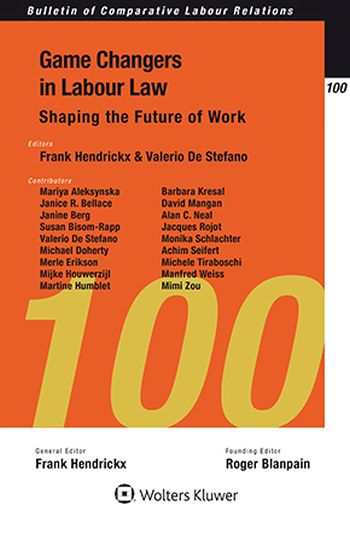
Game Changers in Labour Law is pursued in the spirit and with the methods of the late Emeritus Professor Roger Blanpain (1932–2016), a great reformer who continuously searched for key challenges in the world of work and looked as far as possible into the future, engaging in critical reflection and rethinking the design of labour law. While seeking to identify the main game changers, the authors explore new pathways and answers which may help to understand and shape the future of work. This book provides full and integrated insight into labour law and industrial relations. The scholars were brought together during an international conference organized by the Institute for Labour Law at the University of Leuven, Belgium in November 2017. The renowned international labour law scholars contributing to this incomparable volume use the term ‘game changers’ to refer to evolutions, concepts, ideas and challenges that are having, or have had, major impacts on how we must understand and approach labour law in today’s global economy.
What’s in this book:
This is the 100th of Kluwer’s Bulletin of Comparative Labour Relations, a series Professor Blanpain launched nearly fifty years ago. The contributors address, and reflect on, such vital issues and topics as the following: the ‘gig’ economy;
How this will help you:
Roger Blanpain constantly reminded us that labour relations are power relations. Although this book shows that the power balance is tipped towards employers in today’s world, it is very clear that labour law can play a crucial role in re-enlivening equitable outcomes, fairness, decent work and social justice in our contemporary and future societies, and that academia can help to understand, guide and shape that future. For this reason, this book will be invaluable to professionals in labour relations, whether in the academic, policy or legal communities. It also enables readers to obtain an insight into the main game-changing moments and patterns of labour law over the past decades and in the near future.